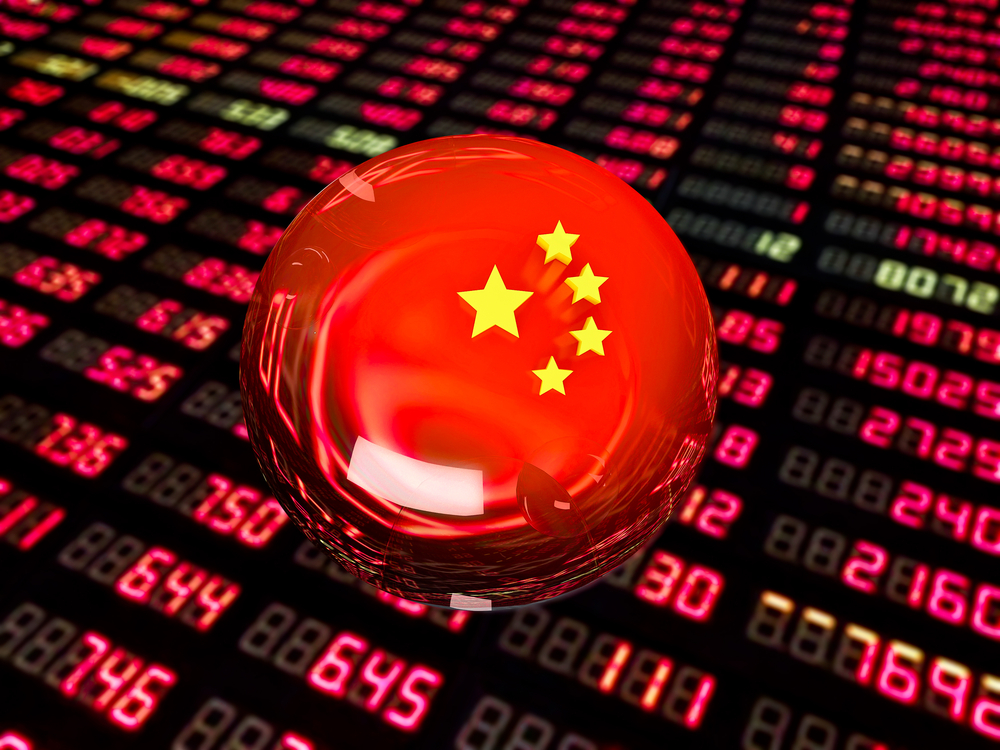Are China’s Market Woes Just Business as Usual?

Please note that we are not authorised to provide any investment advice. The content on this page is for information purposes only.
At the end of April 2015, FXI — China’s prestigious Xinhua China 25 index, a key indicator of China’s stock market value — climbed dramatically, reaching over US$52 per share. By 5 September, the index had dropped to a low of about US$33 per share, representing the destruction of almost 40 percent of its value for the period and trillions of dollars in total. Both retail and institutional investors in China felt the bite. As financial markets react, the question remains, what is happening in China? Is the Chinese economy likely to collapse?
At the end of April 2015, FXI — China’s prestigious Xinhua China 25 index, a key indicator of China’s stock market value — climbed dramatically, reaching over US$52 per share. By 5 September, the index had dropped to a low of about US$33 per share, representing the destruction of almost 40 percent of its value for the period and trillions of dollars in total. Both retail and institutional investors in China felt the bite. As financial markets react, the question remains, what is happening in China? Is the Chinese economy likely to collapse? In addition, what will be the impact on the rest of the world?
To understand the current crisis, one must turn to some recent history. In 2013, President Xi Jinping vowed to liberalise financial markets in China. The Chinese government allowed a small group of hedge funds from the United States and Britain to raise money directly from Chinese investors. In 2014, the government opened the Shanghai stock markets for the first time in history to allow foreigners to purchase A-shares of Chinese domestic stocks directly.
The financial community and free-market economists hailed these moves, seemingly marking a new round of financial liberalisation and China’s further integration into the global financial markets. For China, it was another step in the direction of internationalising the renminbi and attracting more foreign portfolio investment. However, foreigners own only about 1 percent of China’s domestic market value.
Then came the recent crisis beginning with the first dramatic market correction in mid-June 2015.
The Chinese, accustomed to a planned economy, responded predictably to the crisis. First, they tried to fix it via market mechanisms. Brokers told their hedge fund clients to stop short selling, which would allow them to benefit from a fall in the value of shares. China asked newspapers to stop publishing negative stories about the financial markets. In addition, it arrested executives at Citic Securities (China’s largest brokerage), an employee of the China Securities Regulatory Commission and a journalist at Caijing, a key financial magazine. Of course, these measures failed to stem the deteriorating conditions in the market. Instead, they raised suspicions of a larger looming problem: the ‘coming collapse of China’.
A better understanding of what is happening in China today requires a long-term view of the market. The Chinese financial market is a high-risk, high-return market characterised by high volatility. If you invested in China 10 years ago at the launch of the FXI ETF index, you would still have beaten the Dow Jones, although not by much. Depending on when you invested, your return would be markedly different, in either a positive or a negative direction. Timing is everything in China’s financial markets. This may explain why so many of China’s retail investors follow casino-style ‘investment’ behaviour, rather than using fundamentals and valuation.
So, why does volatility punctuate China’s market? The answer is in China’s governance. Governance, according to the World Bank, includes such things as ‘the capacity of the government to effectively formulate and implement sound policies, and the respect of citizens and the state for the institutions that govern economic and social interactions among them’. Using multiple indices, researchers from the World Bank found that, despite the economic miracle of China and apparent market reforms, the presence of corruption and the rule of law have not markedly improved since 1996.
So what does this all mean? It means that China’s recent market woes are business as usual. The market is likely to continue to experience gyrations as long as there is no serious fundamental reform. For China to experience gradual and stable financial markets, it must change its governance regime to be in line with norms in developed and well-functioning markets, such as those in Singapore and Germany.
China will continue to deliver above average, long-term financial returns because its real economy is still emerging. However, to take advantage of these returns, investors must have patience.
Is China’s economic luck running out? is republished with permission from East Asia Forum




